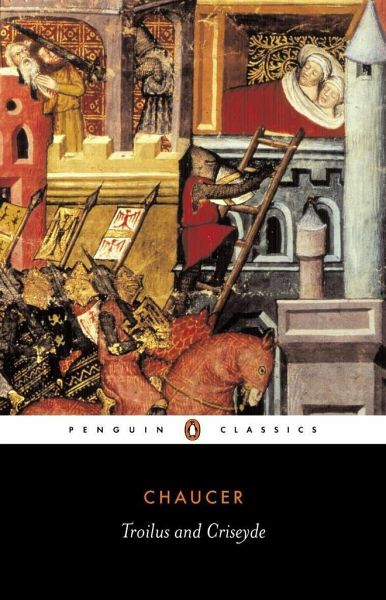
Troilus and Criseyde

PAYBACK Punkte
10 °P sammeln!
Set during the tenth year of the siege of Troy, this poem relates how Troilus persuades Crisyede to become his lover, only to be forced apart by the events of war. This edition contains an introduction that places the poem in the context of its times, with notes and appendices.


